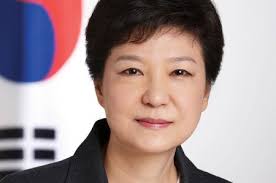In South Korea, opposition party lawmakers have lamented the presidential office’s alleged blacklist of 9,400 artists by comparing them to American Nobel laureate Bob Dylan.
It was found on Tuesday last that Cheong Wa Dae (Office of the President of South Korea) blacklisted 9,473 artists who expressed opposition to government policies or supported opposition politicians, and ordered related state agencies to disadvantage them in providing financial or other support.
The blacklist, first released by a local daily, includes 594 artists who opposed a government enforcement ordinance about the Sewol ferry disaster, 754 authors who signed their names on a statement calling for the government to take responsibility for the disaster, 6,517 artists who declared their support for then opposition candidate Moon Jae-in during the 2012 presidential election and 1,608 artists who supported Seoul Mayor Park Won-soon during the 2014 mayoral election.Moon and Park are leading presidential candidates.

(The President of South Korea is Ms Park Geun-hye)
“I congratulate Dylan, who sang about anti-war, peace and human right,” Seoul mayor Park Won-soon said on Facebook on Friday, after the musician was awarded the 2016 Nobel Prize in Literature, becoming the first songwriter to win the award.
“While Cheong Wa Dae was making the blacklist of pop culture artists, he was writing poetry for the ears that has changed the world,” Park said.
“Now, I want to hear what only Cheong Wa Dae can answer.”
Moon Jae-in, former chairman of the main opposition Minjoo Party of Korea, said the same day on Facebook that the government “must not meddle in the nation’s academic fields and cultural arts but support them.”
Hankook Ilbo quoted Woo Sang-ho, the party’s floor leader, as saying at the party’s Supreme Council meeting, “It is hard to understand how the government will lead the country by blacklisting of artists and other celebrities with critical views.”
People’s Party leader Park Ji-won, joined the critical voices.
“A pop artist receiving a Nobel literature prize indicates that the world has truly entered the age of AlphaGo,” Park said.”But Korea, on the other hand, is moving back to the age of political reform in the 1970s.
“The Park Geun-hye government, which should have been more ‘creative’ than ever, is instead driving the country to the pristine state with its policy on cultural arts.”
The party’s chief policymaker Kim Sung-sik was also quoted as saying, “How much more should we endure to see the government’s shadow removed from the fields of culture?
“The age of political authorities is short but that of art is long.”

